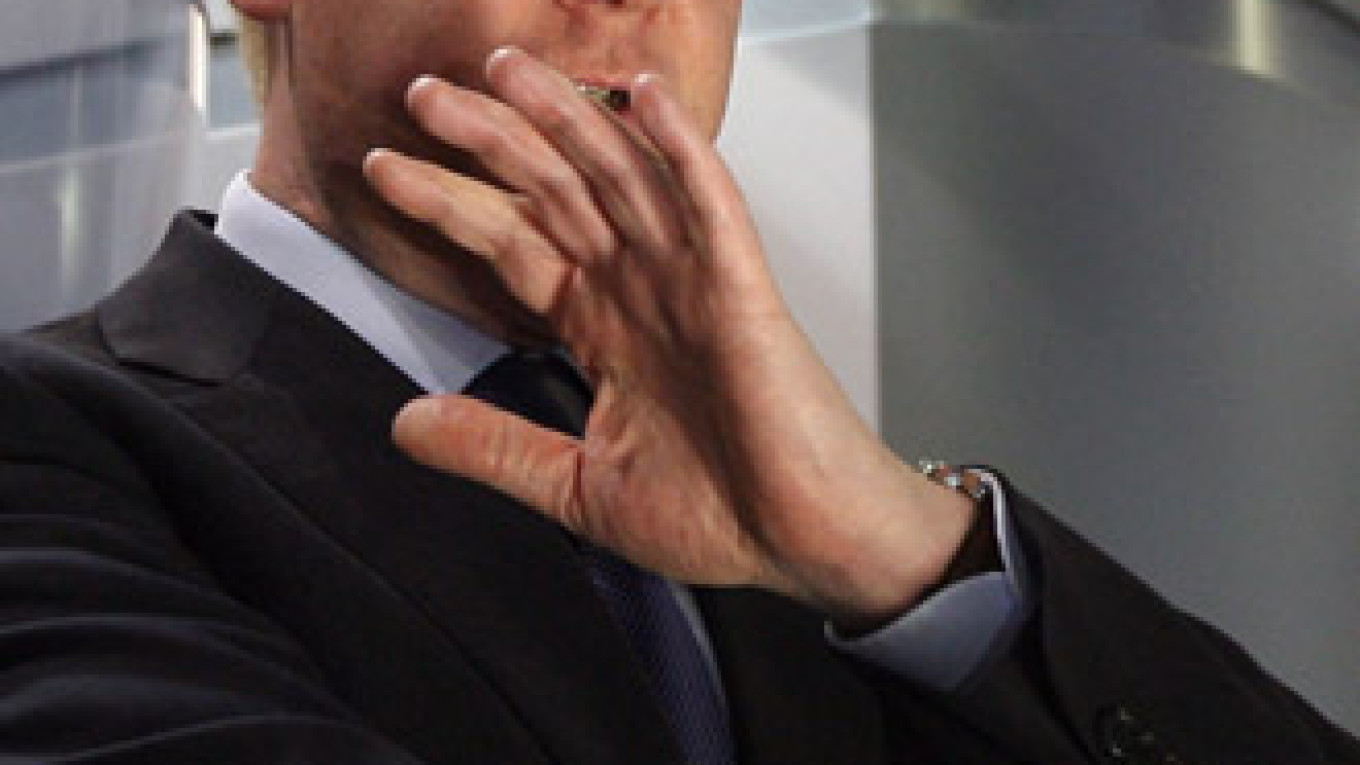Rusnano will issue up to 180 billion rubles ($5.9 billion) worth of bonds by 2015 in a bid to make up for lost government investment, chief executive Anatoly Chubais said Friday.
The state nanotechnology corporation may issue bonds for up to 53 billion rubles in 2010, 39 billion rubles in 2011 and 88 billion rubles from 2012 to 2015, Chubais said in a report on two years of Rusnano’s work.
The money raised on the market will enable Rusnano to boost its spending and help replace the state funds that it will return to the federal budget in December.
The government ordered Rusnano in March to return 85 billion rubles out of 130 billion rubles it had received from the state when it was created in 2007 to help plug a gaping federal budget deficit. Chubais negotiated the figure down to 65 billion rubles earlier this month.
The state corporation will get back the funds used to fill the budget gap in the form of a 35 billion ruble tranche in 2011 and another 30 billion ruble injection in 2012, the report said.
Rusnano has invested 52.4 billion rubles to date in 36 projects, including LED lamp production in the Sverdlovsk region and solar batteries in Chuvashia, while the firm dismissed 446 requests for financing, the report said.
Overall financing for the projects will total 286 billion rubles by 2015. Rusnano forecasts profits of 2 billion rubles next year and 145 billion rubles by 2015.
Once the company becomes profitable, the government will be able to withdraw its funding and in effect privatize the company, Chubais said, Interfax reported.
“The government can take the 130 billion rubles it has invested in Rusnano back after 2015, and it will mean the privatization — I’m sorry for using the bad word,” Chubais said.
Nevertheless, privatization as such shouldn’t be the goal, he said, adding that he was willing to accept state funding to start the investing process, but not as a permanent business strategy.
Chubais was one of the main architects of the privatization of state-owned assets in the 1990s, winning him widespread hatred among Russians. He oversaw the privatization of state-owned power monopoly Unified Energy System from 1998 to 2008.
Chubais said he agreed that there were failures in the privatization of the power industry. “When UES was dismantled, its management set tasks to be fulfilled. They haven’t been completed yet. … The state regulates the sector today. Why doesn’t it look after it?” he said.
In order to modernize the Russian economy, political modernization is needed first, Chubais said.
“The law on state orders, for one, does more harm than the entire Basmanny court system,” he said. The Basmanny District Court has become a byword for corrupt jurisprudence in Moscow. The system of state orders, despite attempts at reform, is still riddled with corruption, as bureaucrats funnel sweetheart deals to connected businessmen.
Chubais also said he didn’t have to think for more than 20 seconds when he was offered a job at Rusnano last year. “I couldn’t believe my happiness,” he said. “Since I joined the corporation so many new worlds have appeared in my head that had never existed there before.”
A Message from The Moscow Times:
Dear readers,
We are facing unprecedented challenges. Russia's Prosecutor General's Office has designated The Moscow Times as an "undesirable" organization, criminalizing our work and putting our staff at risk of prosecution. This follows our earlier unjust labeling as a "foreign agent."
These actions are direct attempts to silence independent journalism in Russia. The authorities claim our work "discredits the decisions of the Russian leadership." We see things differently: we strive to provide accurate, unbiased reporting on Russia.
We, the journalists of The Moscow Times, refuse to be silenced. But to continue our work, we need your help.
Your support, no matter how small, makes a world of difference. If you can, please support us monthly starting from just $2. It's quick to set up, and every contribution makes a significant impact.
By supporting The Moscow Times, you're defending open, independent journalism in the face of repression. Thank you for standing with us.
Remind me later.


